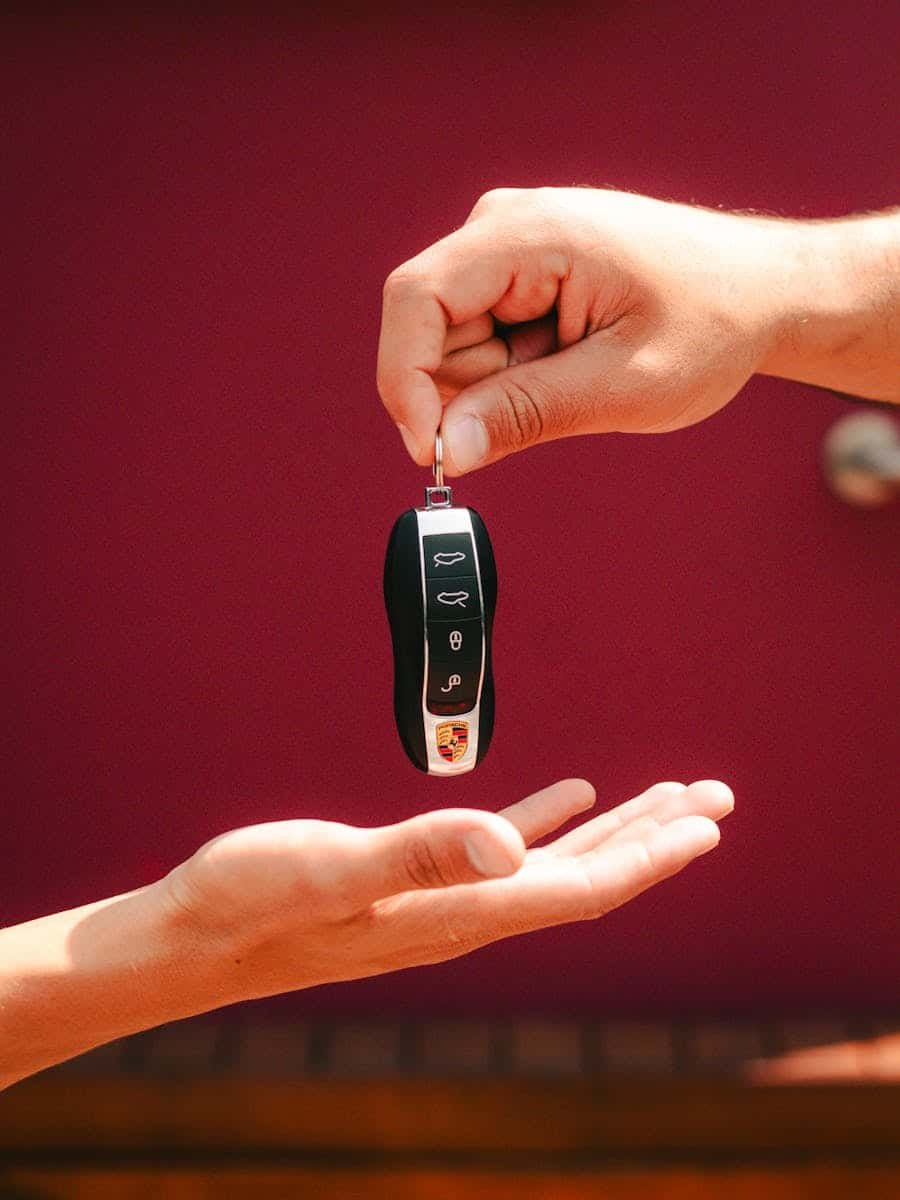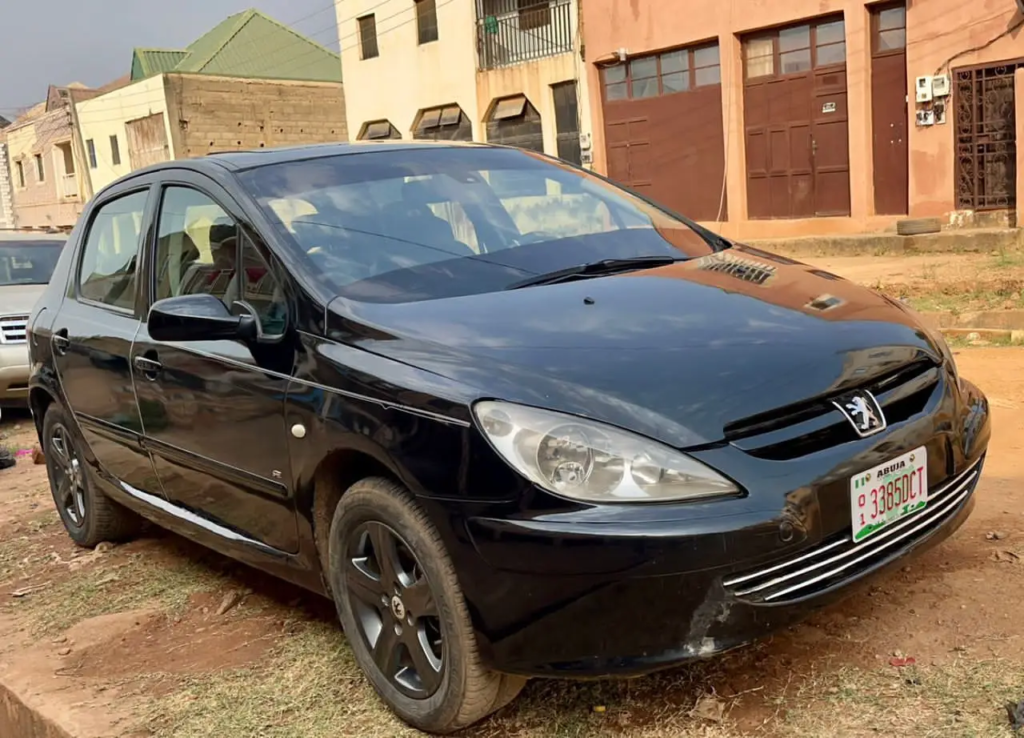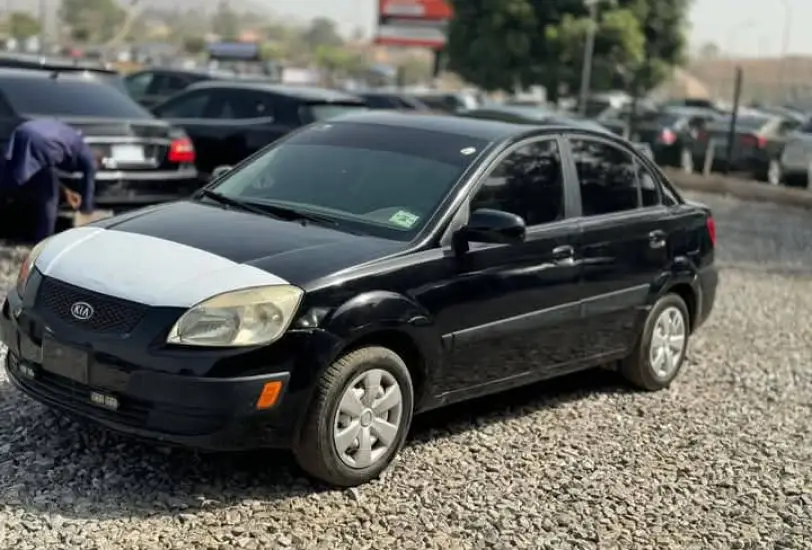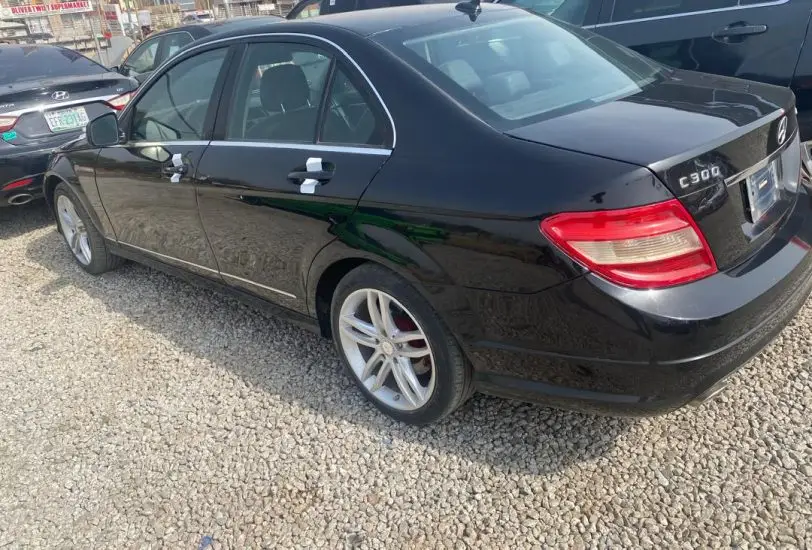1. Understanding Foreign Used Cars
Foreign used cars, often referred to as Tokunbo cars, are vehicles that have been imported into Nigeria from other countries, primarily from Europe, the United States, and Japan. These cars are popular among Nigerian buyers for several reasons:
- Affordability: Foreign used cars typically offer a more cost-effective alternative to brand-new vehicles. They provide the opportunity to own a high-quality car at a significantly lower price, making them an attractive option for many buyers.
- Variety: The market for Foreign used cars in Nigeria is diverse, with a wide range of makes and models available. Buyers can find everything from luxury sedans to compact cars and SUVs, catering to different preferences and budgets.
- Quality Assurance: Many Tokunbo cars are well-maintained and come with service records from their previous owners. This can give buyers confidence in the vehicle’s condition, especially when sourced from reputable dealers.
By understanding what Foreign used cars, or Tokunbo cars, are and their significance in the Nigerian automotive market, buyers can make informed decisions when exploring their options.
2. Researching Online Platforms For Foreign Used Cars
In today’s digital age, researching online platforms is crucial for finding the best deals on foreign used cars in Nigeria. Utilizing reliable websites can save time and help you discover quality options that meet your needs. Here are some key points to consider:
- Importance of Reliable Platforms: When searching for Foreign used cars, it’s essential to use trustworthy online platforms that provide accurate information and genuine listings. This helps avoid scams and ensures a smoother buying experience.
- Autokunbo.com: One of the most trusted and reliable platforms for purchasing foreign used cars in Nigeria is Autokunbo.com. This website specializes in connecting buyers with sellers of Tokunbo cars, offering several advantages:
- Extensive Listings: Autokunbo.com features a wide variety of vehicles across different brands and models, making it easier for buyers to find exactly what they’re looking for.
- User Reviews: The platform includes user reviews and ratings, allowing potential buyers to gauge the reputation of sellers and make informed decisions.
- Detailed Information: Each listing on Autokunbo.com provides comprehensive details about the vehicle’s condition, mileage, and price, helping buyers compare options effectively.
By leveraging platforms like Autokunbo.com, you can streamline your search for foreign used cars in Nigeria while ensuring you access reliable information and quality vehicles.
3. Factors to Consider When Buying a Foreign Used Car
When purchasing a foreign used car (Tokunbo) in Nigeria, several key factors can help ensure you make a wise investment. Here are some crucial considerations to keep in mind:
Car Condition
- Visual Inspection: Always start with a thorough visual inspection of the car’s exterior and interior. Look for signs of wear and tear, rust, or any previous accidents that might affect its performance.
- Mechanical Check: If possible, have a trusted mechanic inspect the vehicle. They can assess the engine, transmission, brakes, and other critical components to ensure everything is in good working order.
Price Variability
- Market Research: Conduct research on the average prices for the specific make and model you’re interested in. This will help you identify fair pricing and avoid overpaying.
- Factors Affecting Price: Understand that several elements can influence the price of Tokunbo cars, including:
- Model Year: Newer models typically cost more than older ones.
- Mileage: Cars with lower mileage may command higher prices due to perceived reliability.
- Seller Reputation: Reputable sellers may charge more but often provide better quality and service.
Fuel Economy
- Efficiency Ratings: Consider the fuel efficiency of the vehicle, especially if you plan to use it for daily commuting. A car with good fuel economy can save you significant costs over time.
- Engine Type: Research different engine types (e.g., petrol vs. diesel) and their performance in terms of fuel consumption. This can influence both your budget and driving experience.
Additional Features
- Safety Features: Look for cars equipped with modern safety features such as airbags, anti-lock brakes, and electronic stability control.
- Technology and Comfort: Consider additional features like infotainment systems, air conditioning, and comfortable seating that enhance your driving experience.
By carefully evaluating these factors, you can make a more informed decision when buying a foreign used car in Nigeria, ensuring that you choose a vehicle that meets your needs and fits your budget.
4. Inspecting Foreign Used Vehicles

Before finalizing your purchase of a foreign used car (Tokunbo) in Nigeria, conducting a thorough inspection is crucial. This step helps ensure that you are making a sound investment, and that the vehicle is in good condition. Here’s a detailed guide on how to effectively inspect a Tokunbo car:
1. Exterior Inspection
- Body Condition: Examine the car’s exterior for any signs of damage, rust, or dents. Pay close attention to the doors, fenders, and bumpers. Look for uneven paint or body panels, which may indicate previous accidents or repairs.
- Tires: Check the condition of the tires for tread wear and proper inflation. Uneven tire wear can signal alignment issues or suspension problems. Ensure that all four tires match in brand and size for optimal performance.
- Lights and Signals: Test all exterior lights, including headlights, brake lights, turn signals, and fog lights. Ensure they function properly and are not cracked or fogged.
2. Interior Inspection
- Cabin Condition: Inspect the interior for cleanliness and signs of wear. Check the upholstery for stains, tears, or odours that may indicate neglect.
- Dashboard and Controls: Ensure all dashboard controls and instruments function correctly. Test the air conditioning, heating, radio, and any other electronic features to confirm they are operational.
- Seat Comfort: Sit in each seat to assess comfort and adjustability. Ensure seat belts are functional and not frayed.
3. Mechanical Inspection
- Engine Compartment: Open the hood and visually inspect the engine for any leaks, corrosion, or worn belts and hoses. Look for signs of oil leaks around the engine block.
- Fluid Levels: Check fluid levels such as oil, coolant, brake fluid, and transmission fluid. Low levels may indicate neglect or potential issues.
- Test Drive: Always take the car for a test drive to assess its performance. Pay attention to how it accelerates, brakes, steers, and handles on different road conditions. Listen for unusual noises that could indicate mechanical problems.
4. Documentation Verification
- Ownership History: Request the vehicle’s ownership history to ensure it has not been involved in major accidents or had significant repairs.
- Service Records: Ask for maintenance records to verify regular servicing. A well-maintained vehicle is likely to be more reliable.
- Vehicle Identification Number (VIN): Check the VIN on the car against its documents to ensure they match. This helps confirm that you are purchasing the correct vehicle.
5. Professional Inspection
- Hire a Mechanic: If you’re not confident in your ability to assess the vehicle’s condition thoroughly, consider hiring a professional mechanic to conduct an inspection. They can identify potential issues that may not be immediately apparent to an untrained eye.
6. Final Considerations
- Negotiation Leverage: Use any findings from your inspection as leverage during price negotiations. If you discover minor issues that need addressing, you can negotiate a lower price or request repairs before purchase.
- Trust Your Instincts: If something feels off during your inspection—whether it’s the seller’s behaviour or the vehicle’s condition—don’t hesitate to walk away from the deal.
By following these detailed inspection steps, you can significantly reduce your risk of purchasing a problematic Tokunbo car in Nigeria. A thorough inspection not only ensures that you’re getting a reliable vehicle but also provides peace of mind as you make your investment.
Also Read : Tokunbo Cars: Definitive Guide To Secrets Of Happy Deals
5. Negotiating the Price of Foreign Used Car
Negotiating the price of a foreign used car (Tokunbo) in Nigeria can be a daunting task, but with the right strategies and preparation, you can secure a fair deal. Here’s a comprehensive guide to help you navigate the negotiation process effectively:

1. Do Your Homework
- Market Research: Before entering negotiations, research the average market price for the specific make and model you’re interested in. Websites like Autokunbo.com can provide valuable insights into current listings and price ranges.
- Know the Vehicle History: Gather as much information as possible about the car’s history, including its previous owners, maintenance records, and any accidents. This knowledge will strengthen your position during negotiations.
2. Set Your Budget
- Determine Your Maximum Price: Before negotiating, establish a clear budget that includes not only the purchase price but also additional costs such as registration, insurance, and potential repairs.
- Stick to Your Budget: Be firm about your budget during negotiations. If the seller is unwilling to meet your price, be prepared to walk away. This shows that you are serious and not desperate to make a purchase.
3. Start with a Reasonable Offer
- Initial Offer: Begin negotiations with an offer slightly lower than your target price. This gives you room to negotiate upwards while still staying within your budget.
- Justify Your Offer: When presenting your offer, provide reasons for your proposed price based on your research and inspection findings. For example, if you noticed minor issues during the inspection or if similar models are priced lower, mention these points.
4. Listen and Adapt
- Be an Active Listener: Pay attention to the seller’s responses and be open to their perspective. Understanding their motivations for selling can help you tailor your negotiation strategy.
- Adjust Your Approach: If the seller counters your offer, consider their reasons and adjust your negotiation tactics accordingly. If they emphasize certain features or benefits of the car, acknowledge these points while reiterating your budget constraints.
5. Leverage Inspection Findings
- Use Inspection Results Wisely: If your inspection revealed any issues—such as worn tires or minor mechanical problems—use these findings as leverage in your negotiations. Pointing out necessary repairs can justify a lower price.
- Highlight Comparisons: If you’ve found similar vehicles listed at lower prices or with better conditions, bring this information into the conversation to support your case for a reduced price.
6. Be Patient and Respectful
- Take Your Time: Negotiation is often a back-and-forth process that requires patience. Avoid rushing into decisions; take time to think over counteroffers before responding.
- Maintain Respectful Communication: Keep the conversation respectful and professional. Building rapport with the seller can make them more inclined to work with you on price adjustments.
7. Know When to Walk Away
- Recognize Red Flags: If the seller is inflexible or unwilling to negotiate reasonably, it may be a sign of a problematic deal. Trust your instincts—if something feels off, don’t hesitate to walk away.
- Explore Other Options: Remember that there are plenty of Tokunbo cars available in Nigeria. If negotiations don’t go as planned, keep looking for other vehicles that fit your criteria and budget.
8. Finalizing the Deal
- Agree on Terms: Once you reach an agreement on price, confirm all terms of sale in writing to avoid misunderstandings later.
- Secure Payment Methods: Discuss payment methods that are safe and secure for both parties. Avoid carrying large sums of cash; consider bank transfers or other secure payment options.
Negotiating the price of a Foreign used Tokunbo car requires preparation, patience, and effective communication skills. By conducting thorough research, setting a clear budget, leveraging inspection findings, and maintaining respect throughout the process, you can increase your chances of securing a fair deal on a quality foreign used car in Nigeria. Remember that negotiation is not just about getting the lowest price; it’s also about finding a mutually beneficial agreement that satisfies both you and the seller.
6. Finalizing the Purchase of Foreign Used Car
Once you’ve successfully negotiated the price of a foreign used car (Tokunbo) in Nigeria, it’s time to finalize the purchase. This step is crucial to ensure that all legal and logistical aspects are addressed, providing you with peace of mind as you drive away in your new vehicle. Here’s a comprehensive guide to help you through this process:
1. Review the Agreement
- Written Agreement: Ensure that all terms discussed during negotiations are documented in a written agreement. This should include the final price, payment method, and any conditions related to the sale (e.g., repairs to be made before delivery).
- Read Carefully: Take your time to read through the agreement thoroughly. Verify that all details are accurate, including the vehicle identification number (VIN), make, model, and year.
2. Verify Documentation
- Ownership Documents: Request the original ownership documents from the seller. This includes the vehicle registration certificate, and any transfer documents required by Nigerian law.
- Inspection Report: If applicable, ask for any inspection reports or service records that can provide insight into the car’s maintenance history.
- Clearance Certificates: Ensure that the vehicle has a valid customs clearance certificate if it was imported. This is essential to confirm that all import duties have been paid.
3. Payment Process
- Secure Payment Method: Choose a secure payment method that protects both you and the seller. Bank transfers or certified checks are often safer than cash transactions.
- Payment Receipts: Always request a receipt for any payment made. This serves as proof of purchase and can be crucial for future reference.
4. Transfer of Ownership
- Complete Transfer Documentation: Work with the seller to complete all necessary paperwork for transferring ownership. This typically involves filling out a transfer form and submitting it to the relevant authorities.
- Notify Relevant Authorities: Depending on local regulations, you may need to notify the Vehicle Licensing Authority in Nigeria about the change of ownership. Ensure that this step is completed promptly to avoid legal issues later.
5. Insurance Coverage
- Obtain Insurance: Before driving your new Tokunbo car, secure insurance coverage. Shop around for quotes from different insurance providers to find a policy that suits your needs and budget.
- Understand Coverage Options: Familiarize yourself with various coverage options (e.g., third-party liability, comprehensive coverage) to ensure adequate protection for your vehicle.
6. Registration Process
- Register Your Vehicle: After completing the ownership transfer, register your vehicle with the appropriate local authority. This typically involves submitting necessary documents such as proof of ownership, insurance details, and identification.
- Obtain License Plates: Once registered, you will receive new license plates for your vehicle. Ensure these are affixed properly before driving on public roads.
7. Post-Purchase Inspection
- Final Inspection: After completing all paperwork and before taking possession of the car, conduct one last inspection to ensure everything is in order. Check that any agreed-upon repairs have been completed.
- Test Drive Again: If possible, take another short test drive to confirm that there are no new issues since your last test drive.
8. Keep Records
- Maintain Documentation: Keep all documentation related to your purchase in a safe place, including the sales agreement, payment receipts, insurance policy, and registration papers.
- Schedule Maintenance: Consider scheduling regular maintenance checks for your Tokunbo car to keep it in optimal condition and prolong its lifespan.
Conclusion
Finalizing the purchase of a foreign used car in Nigeria involves several important steps that ensure legality and security in your transaction. By carefully reviewing agreements, verifying documentation, securing insurance, and completing registration processes, you can enjoy your new Tokunbo car with confidence. Taking these steps not only protects your investment but also enhances your overall ownership experience as you hit the road in your newly acquired vehicle.







